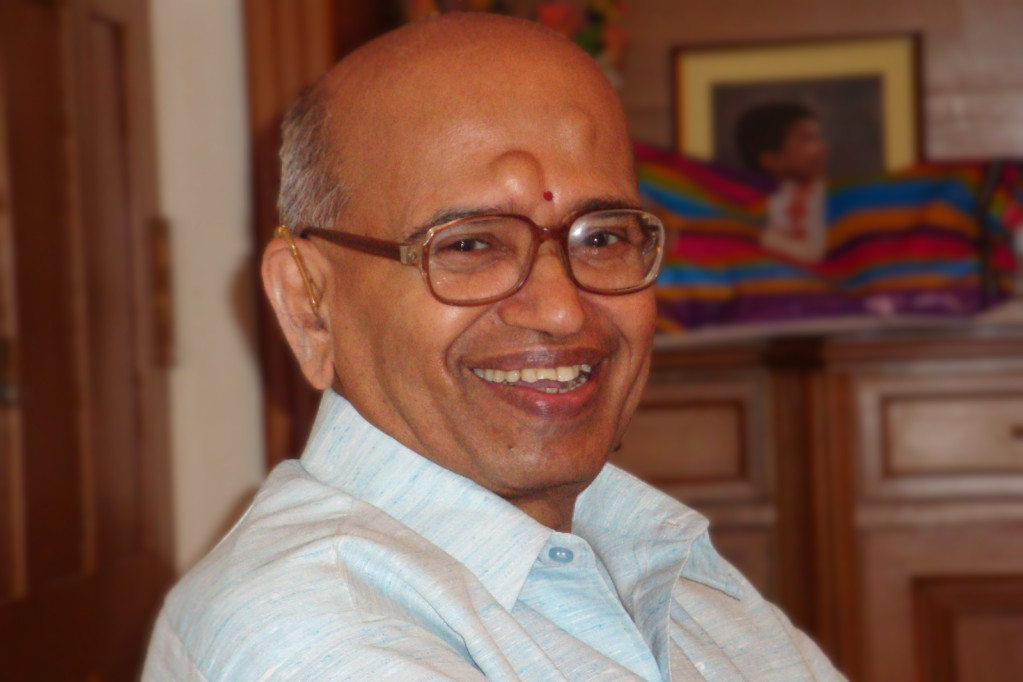Dr. Udipi Madhvanath was the founding father of medical physics in India and had contributed greatly to medical physics across the globe. He was the first IOMP President from the AFOMP region(1991–1994) and had contributed greatly to the Journal of Medical Physics (JMP), one of the AFOMP official journals.
Orphaned at a young age without much financial means, he relied on hard work, various odd jobs, and the generosity of well-wishers to put himself through school and college, eventually completing his MSc in Physics from Presidency College, Chennai, and joining Bhabha Atomic Research Centre (BARC) as a scientist. He took a leave of absence to go to UC Berkeley on a Fulbright scholarship where he completed his PhD in Biophysics, studying the impact of radiation on blood cells. He returned to BARC and eventually retired as the Head of the Division of Radiological Protection in 1992. Radiobiology was his main area of research.
Dr. Madhvanath assisted in establishing the first medical physics course in India in 1962. In 1976, he started the quarterly bulletin of AMPI (Association of Medical Physicists in India), being its first Editor. The Bulletin ultimately took the shape of the present JMP, which is an indexed journal in PubMed and one of the official journals of AFOMP and IOMP.

Dr Madhvanath was the founding member and the first President of AMPI. He organised the Asian Regional Conference on Medical Physics in 1986, before AFOMP was formed. He was also the founding member of the IOMP Developing Countries Committee (DCC)which is now known as the Professional Relations Committee (PRC). Following his active work for the global development of medical physics in developing countries, he was elected as the Vice-President of IOMP in 1988 and subsequently became the President-Elect in 1991 – 1994. He was then elected asthe Vice-President of the International Union for Physical and Engineering Sciences in Medicine (IUPESM) from 1994 to 1997. In this position he worked towards the recognition of the IUPESM as a member of the International Council of Scientific Unions (ICSU) – an activity necessary for the official recognition of our scientific fields.
Dr. Madhvanath was awarded Ramaiah Naidu Oration in India.In 2020, IUPESM included DrUdupi Madhvanath in its first list of Outstanding International Leaders of Medical Physics and Biomedical Engineering and bestowed upon him their inaugural Fellowship.
Dr. Madhvanath is survived by a meritorious son Sriganesh Madhvanath who is Senior Director of Applied Research at eBay Inc in the USA. He has graciously proposed and supported the starting of “Dr. Udipi Madhvanath Memorial AFOMP Best Ph.D. thesis in Radiobiology” from 2022.
AWARD CRITERIA AND SELECTION
Objective: The Dr. Udipi Madhvanath Memorial AFOMP Best PhD Award in Radiobiology is given for the best PhD thesis in radiobiology or related fields. Postgraduate students who have been awarded PhD at a university in the AFOMP region in the past 24 months are eligible to be nominated. The award is kindly supported by Dr. Madhvanath’s family.
Presentation: “Dr. Udipi Madhvanath Memorial AFOMP Best Ph.D. thesis fully or majorly covered in Radiobiology” will be presented annually at the Asia-Oceania Congress of Medical Physics (AOCMP) for the best PhD thesis in radiobiology judged by the AFOMP’s Awards and Honors Committee (AHC) to have demonstrated excellence in PhD research work in terms of clinical relevance, scientific merit and publications capacity.
Nomination procedure: The award will be advertised annually by AFOMP, using the mailing list and via the website.
- Nominations shall be made by the PhD supervisor or a person closely familiar with the PhD thesis.
- The nominee must have successfully completed a Ph.D. thesis fully or majorly covered in Radiobiology at a university in the AFOMP region in the 24 months prior to the closing date for the award nomination.
- Nominations are to be made to the chair of the Awards and Honors Committee (AHC) and Secretary General of AFOMP and should include the following:
a. A nomination form evaluating nominee’s achievements and identifying the specific aspects of PhD research and achievements to be recognized as well as an abstract of the PhD (the form will be made available with the call for nominations).
b. Curriculum Vitae of the nominee.
c. A copy of the PhD degree conferral letter from the university.
d. A list of publications arising from the PhD. - Self-nominations will not be considered.
- Current members of the AFOMP AHC committee and ExCom are ineligible to be nominated.
Criteria for Selection
The primary selection criteria for the Awardees are:
- The nominee has produced a high-quality Ph.D. thesis fully or majorly covered in Radiobiology and is likely to have an impact on communities beyond the university.
- Exceptional scientific quality and novelty of the nominee’s PhD thesis.
- The nominee’s PhD thesis quality is supported by publications, conference presentations and/or other awards or recognitions.
- All eligible nominations will be evaluated by the AHC, and a recommendation will be put forward to the AFOMP ExCom for consideration.
- The Award will consist of a cash prize of US$400, a certificate and a memento. Awardee will be requested to give a presentation of his/her work during the next AOCMP.
